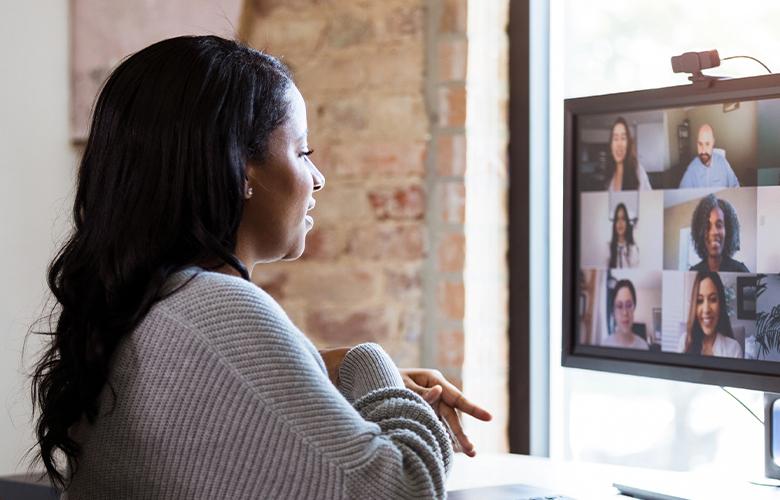
As the COVID-19 pandemic continues to affect our way of life and work, researchers like us are having to rethink how we collect data. We typically rely on in-person methods, such as focus groups, to understand what people think about an experience and program observations to document a program’s implementation. But how do we collect such rich information without sharing physical space with other people? We adapt.
Many learning institutions, such as schools, libraries, and museums, are offering more—and often only—online learning options due to COVID-19. And they are curious about how students and patrons are experiencing these learning opportunities and if online programs are meeting their goals. Researchers can address these questions through evaluations and by adapting their methods, such as collecting data remotely, to help improve these programs.
For example, as part of our evaluation of NASA@ My Library, we conducted a series of online focus groups with project participants. Then using webcams and online software, we virtually observed library programs that connected NASA scientists with library patrons to watch the programs in action.
Here is what we’ve learned so far about conducting online focus groups and virtual program observations:
- Online data collection is more convenient and less costly for everyone. There is no need to travel, and schedule coordination is simpler.
- People are sometimes more comfortable talking with researchers when they are not in the same physical space. Being remote—and having the option to turn off one’s camera—can make it safer to discuss difficult topics or offer critical feedback.
- Using an online meeting platform such as Zoom allows for multiple modes of communication. Focus group participants can use the chat function to agree or disagree with a comment someone else has made. Poll functions provide another way to collect input.
- Obtaining consent from participants is important, especially if you plan to record the session.
- Equity and access to technology remains a significant problem. Researchers must be wary about who they are and are not reaching with virtual methods. Not everyone has access to a device with a webcam or a reliable Internet connection or is comfortable participating in an online meeting.
Virtual data collection is not a panacea, but we have found it to be a viable alternative that provided us with useful data.
What are your thoughts or experiences about the benefits and challenges to online focus groups and program observations? Leave a comment below.
You can learn more about NASA@ My Library’s virtual STEM library programs here.
Ginger Fitzhugh is a senior research associate at EDC. She evaluates informal science learning programs designed to broaden participation in STEM. | |
| Jennifer Jocz is a research associate at EDC with a focus on evaluating STEM education programs in formal and informal settings. | |
| Carrie Liston, a research associate at EDC, helps programs seeking to diversify STEM increase their effectiveness and impact through evaluation. |



Add new comment